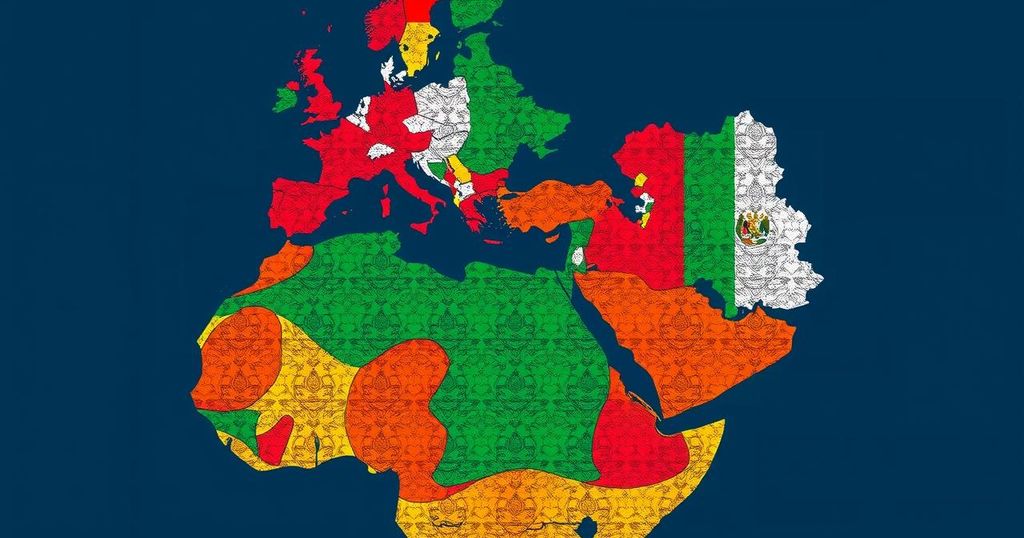Russian President Vladimir Putin extended “total support” to African countries during a summit in Sochi, emphasizing cooperation against terrorism and extremism. As African nations turn away from traditional Western allies, they seek partnerships with Russia for military and economic collaboration. While some view Russia’s involvement as a path to independence, concerns about effective solutions against security threats persist.
At a recent summit in Sochi, Russian President Vladimir Putin communicated a message of “total support” for African nations in their fight against terrorism and extremism. This address, delivered by Foreign Minister Sergei Lavrov, comes as several African countries seek partnerships with Russia over traditional Western alliances. Burkina Faso’s Foreign Minister voiced sentiments shared by many former French colonies, indicating a preference for Russia’s cooperative stance over what they deem neo-colonial relationships with Western powers. African leaders expressed a desire to deepen ties with Russia, particularly in military and economic sectors, with Mali’s Foreign Minister highlighting ongoing collaborations in energy, telecommunications, and mining. The presence of Wagner mercenary fighters, now associated with the Africa Corps, reflects a significant shift in military engagements following the withdrawal of French and UN troops. Although Russia’s military support has been aimed at bolstering junta governments in countries like Burkina Faso, Mali, and Niger, it has not significantly diminished the threat posed by Islamist militants. As Russia promotes its growing influence, Lavrov asserted that relationships with Africa are strengthening across various sectors, echoing Putin’s commitment to comprehensive support for African partners facing multiple challenges. European Union representatives have acknowledged the shifting dynamics of Western influence in Africa and cautioned against underestimating Russia’s historical connections with African nations. The pragmatic approach of African leaders indicates a need for diversifying partnerships amid geopolitical competition, with some nations pursuing nuclear cooperation with Russia. While President Putin previously promised to double trade with Africa, achieving this goal remains unfulfilled. Despite this, Russia’s non-interventionist approach and provision of military assistance have garnered considerable support from disillusioned African governments, signaling a notable reconfiguration of international alliances on the continent.
The context of this discourse revolves around Russia’s growing political and military engagement in Africa. In recent years, many African countries have been re-evaluating their relationships with traditional Western allies, particularly France, which has previously held significant colonial influence. This reevaluation has been spurred by rising security threats from jihadist groups, leading countries such as Burkina Faso and Mali to seek alternative partnerships that promise military and developmental support without perceived interference in their sovereignty. Russia’s historical ties and current engagements reflect an opportunistic shift in the geopolitical landscape, with various global powers vying for influence in the resource-rich continent. Additionally, the involvement of Russian military contractors and the rebranding of groups like the Wagner Group serve to enhance Russia’s military presence and sway in the region, despite international concerns over their impact on local stability. The overarching theme emphasizes the complexity of international alliances in a changing world, where African nations strive for autonomy while navigating the interests of emerging global players.
In summary, the recent summit in Sochi marked a significant moment in Russia-Africa relations as President Putin’s pledges of “total support” resonate with several African governments seeking partnership alternatives to traditional Western allies. While Russia provides military aid and promises of non-interference, the true effectiveness of such partnerships in addressing the challenges posed by jihadist groups remains to be seen. The evolving landscape of alliances in Africa underscores the continent’s strategic importance and the need for nations to cultivate diverse partnerships to address security and development needs effectively.
Original Source: www.bbc.com






